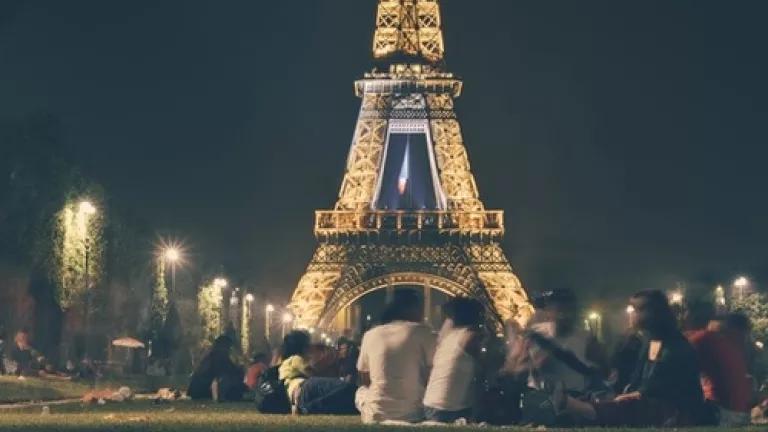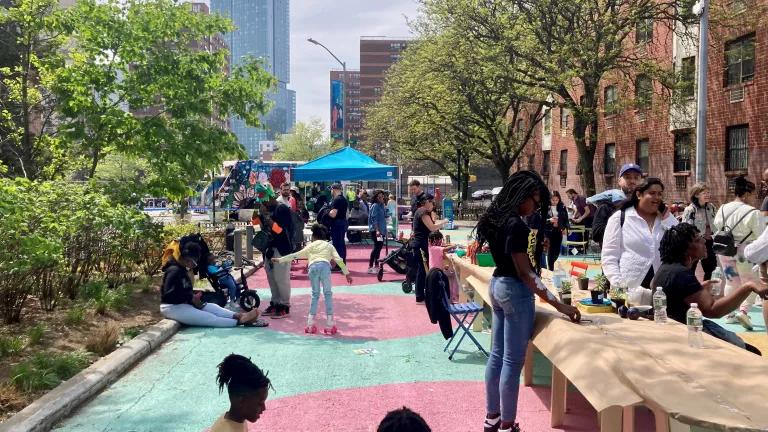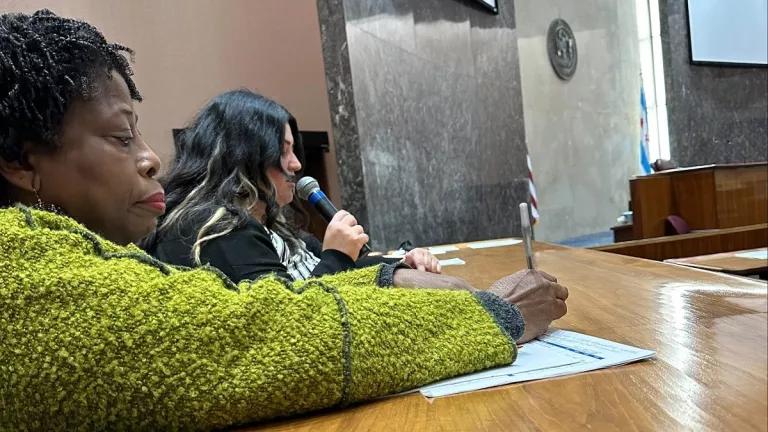
As you can imagine, environmental professionals have been hurriedly preparing for what insiders call COP21 and what just about everyone in the environmental world now just refers to as "Paris."
Of course, "Paris" now has new meaning as a shorthand reference, and we are mindful of that fact and that the world is watching our gathering - an international conference on the future of global climate action. But I'm hoping we can pull back for a second from the flurry of activity for the conference in order to stop and ponder our mission - one that even major security threats cannot deter. For what we are preparing to do is bigger than all of us, yet at the same time personal -- to each of us who breathes our air, drinks water and lives on land. That includes the rich, the poor, the free, the oppressed, the privileged and the disenfranchised.
My own area of interest is at that personal level - where climate change meets people where they live - in the cities and neighborhoods on the front lines of the floods, temperature extremes, storm surges, fires, droughts and dirty air resulting from the effects of climate change.
And, it seems that everyone this time around understands the importance of going local. Cities have played an important role in these global talks in no small part because UN Secretary-General Ban Ki-moon knew what he was doing in naming former New York City Mayor Michael Bloomberg his special envoy for cities and climate change in forming the Compact of Mayors, "the world's largest cooperative effort among mayors and city officials to reduce greenhouse gas emissions, track progress, and prepare for the impacts of climate change."

Bloomberg has been tireless in promoting the interests of cities in Paris because he understands that environmental action also means more and better jobs, improved health, affordable housing, more attractive neighborhoods and green space, more business investment, lower power bills and easier commutes for everyone. All attributes of strong, sustainable and just communities.
As the biggest contributors to climate change globally -- urban centers account for more than 70 percent of global greenhouse gas emissions and two-thirds of the world's energy use -- cities hold the key to fighting back effectively. Cities are centers of adaptation and innovation, and they are not beholden to international negotiations or congressional action. When cities get it right, which they increasingly are learning to do, they advance solutions that everyone can use.
But, while cities are centers of creative energy where solutions for greater sustainability and resiliency can be had, they also stand as a reminder for all of us in Paris: While the effects of failing to take good care of our natural resources are local and personal, the negative results of that failure don't affect everyone equally.
That is why we must also capitalize on cities' commitment to social justice and make targeting climate solutions to low-income and communities of color a high priority because these populations are the most vulnerable to climate effects, whether in developed or developing nations. These communities can serve as major stakeholders and partners for change as we have learned in some of our own NRDC Urban Solutions work in the United States.
I'll be in Paris talking about our groundbreaking efforts in helping cities establish programs for retrofitting buildings, the biggest energy wasters, and in establishing an international network Green Banks for greater investment in energy efficiency and transportation options- as well as investigating ways that philanthropy can help cities worldwide lead the way in innovative solutions to climate change.
There will be celebrations, I'm sure, over President Obama's announcement that he has reached his ambitious goal for local climate action by counting more than 100 cities as signatories to the Compact of Mayors. But there will also be somber reflection on what has brought us to this point of solidarity and expected collaboration in the majestic city of Paris.




